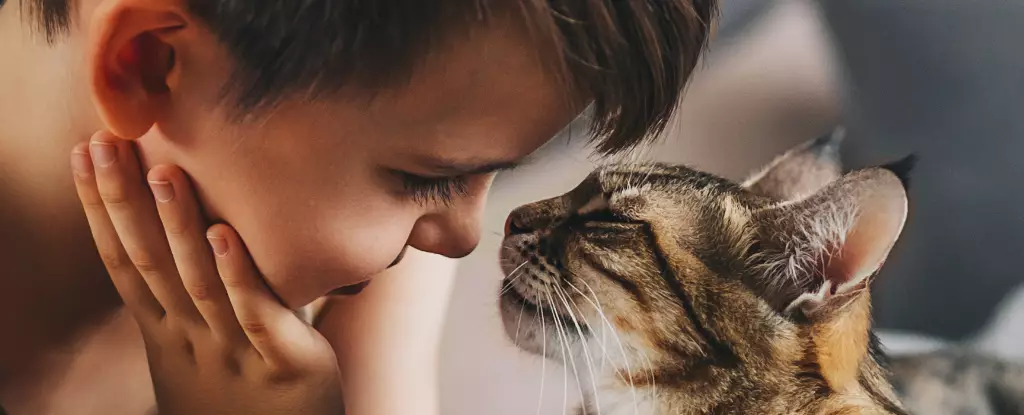The companionship of cats and humans is a phenomenon that spans thousands of years. From ancient civilizations venerating these mysterious creatures to the modern pop culture featuring adorable cat videos, felines have embedded themselves in our lives in diverse ways. Yet, beyond their amusing antics and comforting purrs lies a significant question: how does living with a cat impact our health? The relationship we share with our feline friends is intricate, unfolding layers of benefits and risks that are essential to comprehend.
Research has revealed that for many, cats are not merely pets; they are integral members of the family. A study conducted in the Netherlands highlighted that nearly 50% of cat owners consider their feline companions as part of the family unit. These findings resonate with sentiments that many perceive their cats as children or best friends, fostering a sense of loyalty and emotional support akin to that found in human relationships. It seems that these furry cohabitants not only provide companionship but also help cultivate a deep emotional bond that alleviates feelings of loneliness.
In particular, the quality of the human-cat relationship can vary significantly among individuals. Studies have distinguished between relationship styles that range from distant to co-dependent. Notably, those who foster a close bond with their cats report heightened emotional connectivity, suggesting that the nature of the relationship can profoundly influence feelings of happiness, purpose, and satisfaction.
Owning a cat can extend beyond emotional fulfillment to manifest tangible health benefits. Research indicates a correlation between pet ownership and a reduction in the risk of cardiovascular diseases, such as heart attacks and strokes. While it’s critical to note that this correlation does not imply causation, it nonetheless suggests that those who embrace feline companionship may experience favorable health outcomes.
Moreover, pet ownership has been linked to improved psychological well-being, particularly in individuals battling depressive symptoms. The simple act of petting or playing with a cat has shown to yield immediate positive effects on mood, providing brief respite from feelings of sadness and anxiety. Some studies suggest that interacting with animals can induce the release of oxytocin—the “love hormone”—enhancing feelings of contentment and relaxation.
Interestingly, owning a cat may also bring about positive changes in the gut microbiota. Emerging research suggests that individuals with cats maintain diverse gut bacteria that could potentially lead to improved glucose control and lower levels of inflammation. These factors all play a role in overall health and can contribute to enhanced immunity. Therefore, the presence of a purring companion may not just nurture our emotional landscapes but could have far-reaching implications for our physical well-being.
Despite the myriad potential benefits of cat ownership, the relationship is not without its challenges. Cat caregivers may sometimes face burdens, especially when their pets require additional medical care. Studies have indicated that approximately one-third of individuals caring for cats with chronic illnesses experienced significant emotional distress, which could, in turn, complicate their own mental health conditions.
Moreover, the potential for zoonotic diseases introduces a layer of risk for cat owners. Toxoplasmosis, a parasitic infection often transmitted through cat feces, poses serious health threats, particularly for pregnant women and immunocompromised individuals. While most people may only experience mild flu-like symptoms, the stakes are considerably higher for vulnerable populations.
Additionally, allergies remain a prevalent concern among those who coexist with feline companions. Allergenic reactions can stem from cat saliva, fur, and dander. Although strict cleaning regimes and creating allergen-free areas in the home can mitigate these issues, the increasing prevalence of cat allergies poses another challenge for prospective cat owners.
The nuanced relationship between humans and cats forms a tapestry of joy, companionship, and health implications that is both rewarding and complex. While cats can improve our emotional well-being and foster physical health benefits, the associated risks highlight the need for awareness among pet owners. Ultimately, understanding the dual nature of this relationship can empower individuals to nurture their bond with their feline friends while remaining vigilant about their health and well-being. The journey with our cats, filled with laughter, love, and occasional challenges, is truly a testament to the profound connection shared across species.

